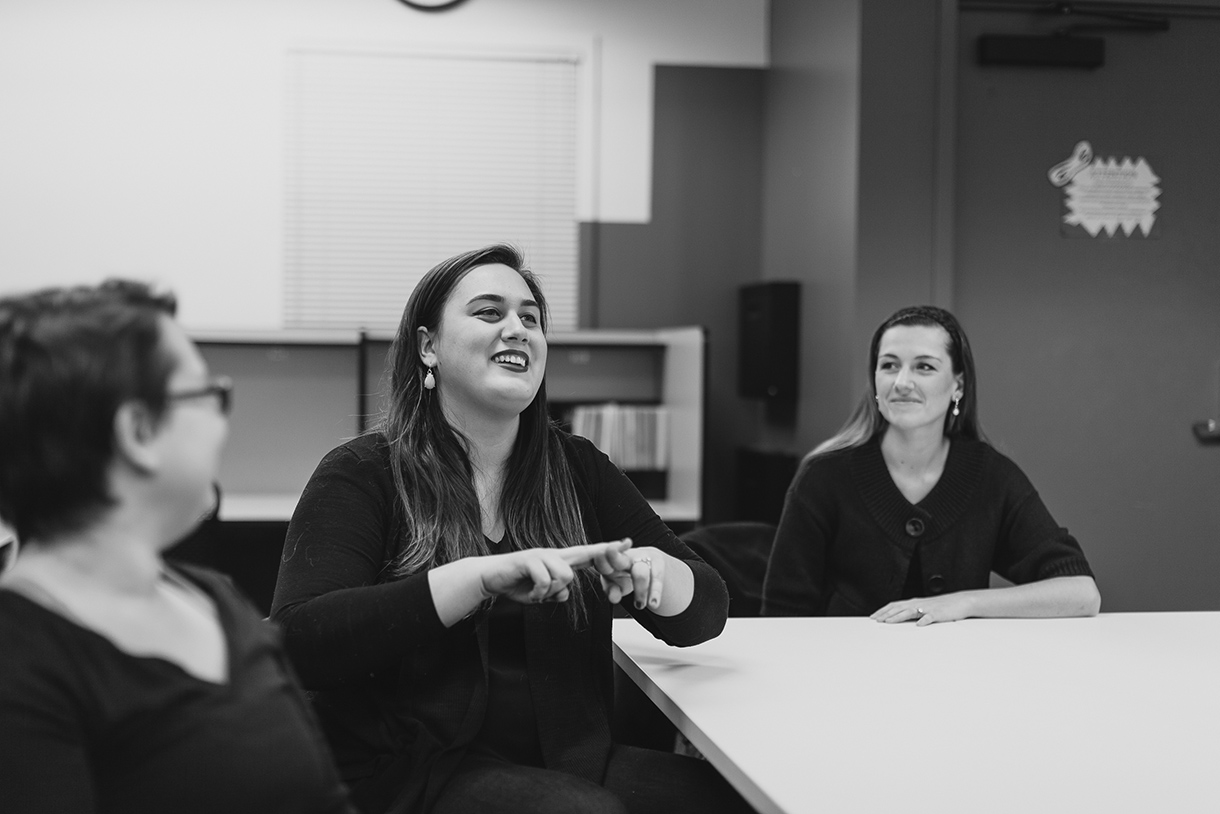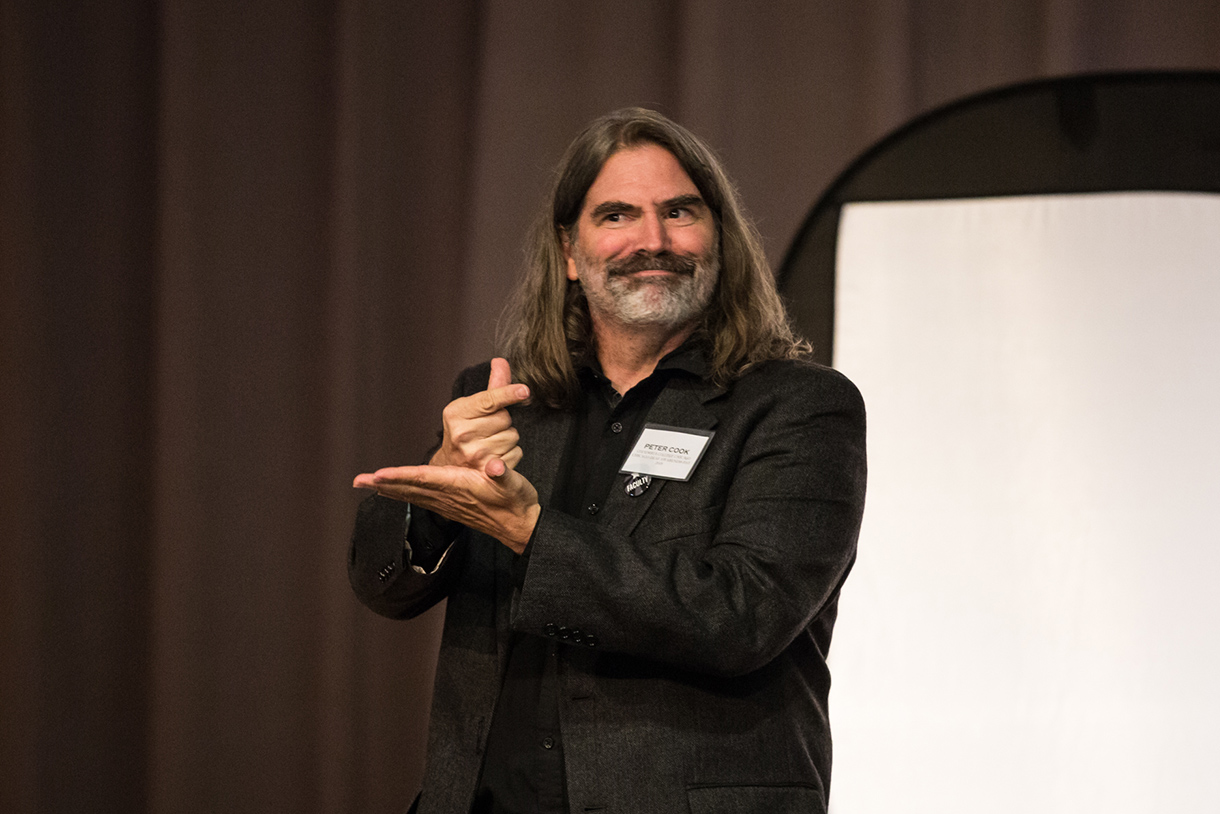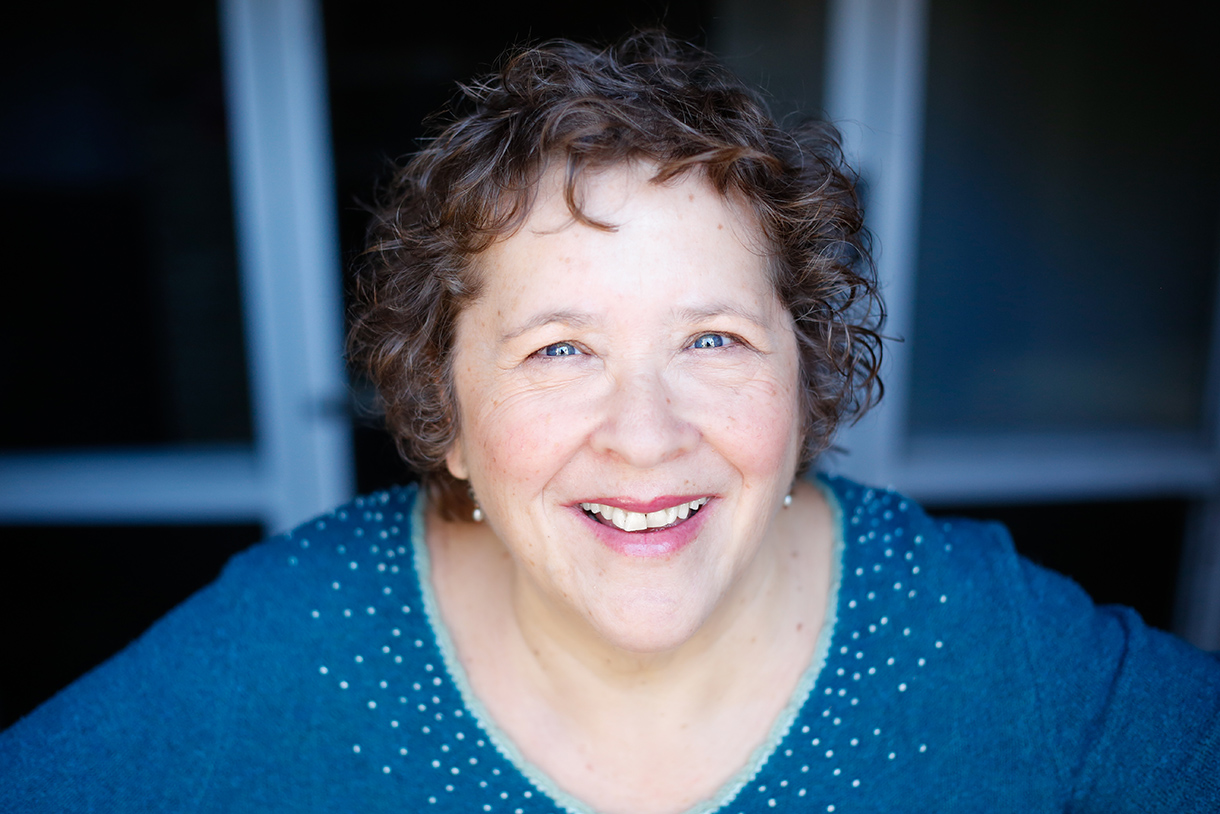Breaking the Mould: Society Catches up with Deaf Performers
For Associate Professor, Chair of ASL and Deaf performer Peter Cook, watching “CODA” star and personal friend Troy Kotsur’s acceptance speech was a moment for the ages. It was the first time a Deaf actor had been honored this way by the Academy.
“I just wanted to say,” Kotsur said upon accepting his award, “that this is dedicated to the deaf community, the CODA community, and the disabled community. This is our moment.” The poignancy of that statement rings true for all differently-abled performers who must navigate the world in unique ways. For Cook, a thought-leader in the Columbia Community, this reality aligns with the skills that the ASL Department fosters in students interested in studying sign language at Columbia College Chicago.
Cook understands that the real obstacle to success for Deaf performers does not lie in in the most obvious point of difference between them and their hearing counterparts. “Being Deaf is not the obstacle,” Cook says. “It is all about accessing the language. Since the modality of language delivery is mainly auditory, it poses accessibility challenges for both sides of worlds: the Deaf world and the mainstream world.” When those challenges are met, as “CODA” illustrates, magic can happen. Kotsur is proof of this. In thanking his director, he noted “Sian Hader brought the Deaf world and the hearing world together, and you [Sian] are our bridge.” Columbia, too, is in the business of building these bridges.
For Associate Professor Susan Padveen of Columbia College Chicago’s Theatre Department, those bridges are borne of a commitment to the work. “I remember a project I did quite some time ago, with a cast of hearing and Deaf actors, creating a devised piece based on a poem by Dylan Thomas,” Padveen says. “There were people on both sides who said it wouldn't work. I think we proved them wrong. I learned so much on that project.” Padveen and Columbia College Chicago’s Deaf and Deaf-ally performers and performance artists have come to know that establishing a spirit of inclusivity and adopting an adaptive mindset leads to limitless creative potential.
That adaptive mindset first begins with perspective. For Pavdeen, that means creating performance spaces that invite shared experiences for people of different backgrounds. For Cook, that means challenging his students in ASL and the community he performs for to consider Deafness as a cultural touchpoint rather than, as he puts it a “pathological issue.” The result of both tactics is also an emphasis on connection: “It is our mission at Columbia is to educate our students to become advocates for the Deaf community by fostering allyship within the Deaf community and by facilitating authentic messages between two worlds,” Cook says. As a department committed to producing multiple pathways for success and uniquely suited to supporting the interests of those in performing arts, Columbia’s ASL program offers such varying classes as “Creativity and ASL,” “Representation of Deaf People in Media,” “ASL Literature,” “Deaf Theater Production,” “Deaf Art History,” “Musical Interpreting,” and several special topics courses.
The goal is to provide students with the resources necessary to navigate their own paths in what can be a challenging industry, one known for casting hearing actors in Deaf parts and often overlooking the storytelling abilities of differently abled performers from all walks of life. Those stark realities do not mean that success is unreachable; it means that persistence is a necessary habit to cultivate. As Pavdeen urges students: “Never give up. Never. You don't know how something will turn out - sometimes the most impossible outcome becomes real if you persevere and commit to the work involved.” Coook agrees. “Carolyn Forché, a poet once said to me: ‘Be a farmer, keep throwing out seeds, just keep going… do not stop…who knows what these magical seeds will bring you.’ And she is correct about this,” he says. And, with fifteen awards and hundreds of performances under his belt, he is living proof that the axiom is true. There are seeds to be thrown and seeds to be sewn—and allies and community at Columbia to celebrate the journey from start to finish.
Recent News
- Columbia Holds Sixth Annual Hip-Hop Festival
- 5 Questions with Columbia Alum and Trustee Staci R. Collins Jackson
- Anchor and Reporter Paige Barnes ’21 Found Stories Worth Telling at Columbia
- Make Columbia Part of Your Holiday Season: Watch Alum Movies and Shows
- Fashion Design Alum Shaquita Reed ’18 Expresses Herself Using Different Mediums


